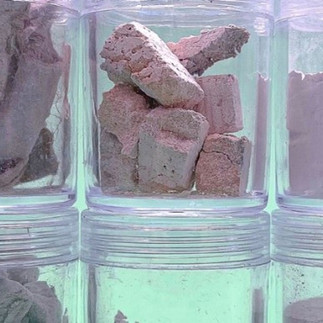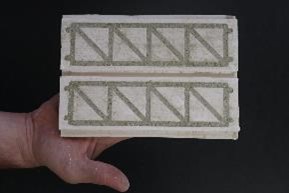CIRCuIT hackathons advance circular skills and innovative solutions
- CIRCuIT
- May 11, 2022
- 4 min read
Updated: May 16, 2022

Promoting the upscaling and replication of circular economy solutions across the built environment is a key objective of the CIRCuIT project. Hackathons are a great way to enable this knowledge sharing, capacity building and collaboration. To date, CIRCuIT consortium members across the four partner cities have collectively held 16 hackathons, involving over 200 participants in addressing project challenges. Each one has invited input and collaboration from students, industry partners, small businesses and entrepreneurs to produce a range of conceptual and tangible solutions to those challenges. The hackathons have also highlighted several challenges, barriers and opportunities when incorporating circular economy principles in construction.
Some selected highlights include:
Copenhagen
Hackathon 1: Camp Circular Construction
Dates: 2-3 February 2021 Location: Virtual Organised by: GXN and Maker, with participation from BLOXHUB, Vivihouse and Saint-Gobain Theme/topic: Design for disassembly and flexible construction (WP6) Stakeholders and target audience: Architects, designers, students Number of participants: 26 applications, 9 participants Participants were tasked with developing an alternative to a typical partition-wall by either hacking the known solution or proposing a different partition wall system. The winning proposal would potentially be applied to a CIRCuIT demonstrator. Two groups - 'Plug'N'Wall' and 'sPIN WALL' - proposed concepts, with the judges ultimately choosing 'Plug'N'Wall', a modular partition wall system that offered many possibilities of size, materials and use (below) as the winner. The main deciding factor was that, to a larger degree, it relied on pre-existing available market-ready products, which resonated with those in industry. Both groups provided great solutions to the brief, emphasising the importance of enabling the joining systems to be easily disassembled to allow for future use of the wall and its materials.

Above: The winning 'Plug'N'Wall' concept from Camp Circular Construction hackathon
Hamburg
Hackathon 3: Demonstrators for material cycle-compatible architecture
Dates: June 2021 Location: Virtual Organised by: Hamburg University of Technology, HafenCity University Hamburg Theme/topic: Material cycle-compatible architecture (WP4, WP6) Stakeholders and target audience: Architecture students Number of participants: 23
Students were tasked with creating a proposal for structural demonstrators (e.g. installations, prototypical component presentations) with which to illustrate the principles and goals of the CIRCuIT project in a public space. Their proposals had to demonstrate a conceptual examination of their chosen materials’ life cycle impact, with specific inclusion of the strategies formulated in work packages 4 and 6 of the project (WP4: Urban mining and reverse cycles and WP6: Design for disassembly & flexible construction).
The students presented concepts which promoted recycling and reuse of building materials, with first place going to Corinna Bonow (see below).

Above: The winning concept from the hackathon: Demonstrators for material cycle-compatible architecture
Helsinki
Helsinki region hackathons 1, 2, 3: The New Life of a Precast Concrete Building
Dates: 8, 15, 22 April 2021 Location: Virtual Organised by: Helsinki region partners with the Finnish Ministry of the Environment, HYPPY project and Hämeenlinnan asunnot Theme/topic: The New Life of a Precast Concrete Building (WP4) Stakeholders and target audience: Students of architecture and structural design from six universities in Finland Number of participants: 40-60 in total throughout the three weeks
Students were tasked with creating a new, innovative, scalable and low-CO2 emission solution for reusing building components of a precast concrete building. The building in question was an apartment building presented by real estate company Hämeenlinnan Asunnot Oy, that was planned for demolition and was also representative of often-demolished building types in Finland. Students worked together over the three weeks in teams of three to five people.
The winning team’s idea, Loft Upcycled, was a concept for a loft using reclaimed load-bearing interior walls and precast floor slabs. These components typically form 52% of the carbon footprint of the building. The concept makes use of standard elements of equal size: the elements are piled up to form a high wall (two storeys high) using detachable mechanical joints. A balcony and an access balcony structure are made of wooden elements, with a loft inside the flat helping increase potential future transformability of the space. The idea even included a plan for a quality certificate for disassembled building parts.

Above: Drawing and renders of Loft Upcycled
London
Hackathon 2: Urban mined, Batch.Space, London, March to June 2021
Dates: March to June 2021 Location: Batch.Space, London, UK Organised by: Clear Village Theme/topic: Urban Mined (WP4) Stakeholders and target audience: Designers, SMEs, demolition contractors Number of participants: 3 The second London hackathon, Urban Mined, explored the question: How might we recycle or reuse contaminated or impure materials? The team experimented with the three low-grade materials by crushing, drying and melting them, first in a domestic microwave and later using a hobby kiln. By working at this craft scale the team innovated circular ways that make it possible to sculpt and re-sculpt the materials into architectural forms that celebrate their flaws.
An outcome of the hackathon was that GoodWaste, one of the SMEs in the hackathon, was invited by Waltham Forest Council & Arts Council England to scale the process for a full interior refurbishment and public engagement in collaboration with Blackhorse Workshop.
Above: Materials from Hackathon 2: Urban Mined









Comments